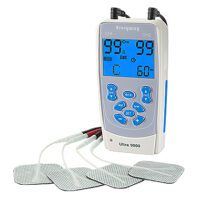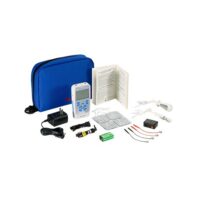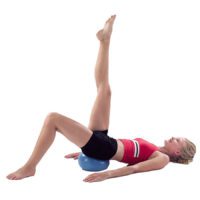Article by John Miller
TMJ Treatment: Finding the Optimal Approach
Determining the most effective treatment for TMJ dysfunction hinges on a few key factors: the clinical diagnosis, the specific nature of the TMJ dysfunction, and its duration over time.
For instances of TMJ opening disorders, enhancing jaw movement techniques often yield favourable outcomes. These techniques encompass a spectrum from jaw muscle massages to dry needling or acupuncture, muscle relaxation exercises, and joint capsule stretching methods. These approaches are typically administered by your physiotherapist, ensuring a tailored approach to your condition.
In contrast, the management of TMJ closing disorders, like bruxism (teeth grinding), usually falls within the domain of your dentist due to the relevance of teeth occlusion. If needed, occlusion splints or bite plates can offer assistance.
When to See Your Dentist or TMJ Physiotherapist?
When in doubt about the most suitable path for treatment, it's advisable to consult a TMJ physiotherapist for concerns about jaw joint pain, clicking, or limited motion during mouth opening. For issues related to teeth clenching, your dentist can provide guidance. Remember, seeking the counsel of a TMJ health professional is paramount, as they can guide you toward the most appropriate care pathway, if required.
Physiotherapy TMJ Treatment
Following a thorough assessment, your TMJ physiotherapist will embark on corrective measures, where applicable. The effectiveness of TMJ physiotherapy predominantly stems from its capacity to address movement disorders rooted in muscle and joint control.
Prompt Relief through Physiotherapy for TMJ Dysfunction
A silver lining lies in the fact that your TMJ physiotherapist initiates treatment for your TMJ dysfunction, muscular tension, or coordination concerns on the very same day as your assessment. In cases where physiotherapy aligns with the categories of assistance, you'll likely leave the clinic with remarkable improvement or even complete resolution after your initial treatment session.
In instances where physiotherapy isn't projected to be effective, rest assured that a referral to the most suitable healthcare expert for a swift resolution will be offered.
Positive Prognosis for TMJ Treatment
Conservative treatment typically yields positive outcomes for the majority of patients, with the potential for symptoms to ameliorate even without intervention (Michelotti A, 2010).
A study by Field in 2012 underscored the efficacy of conservative TMJ physiotherapy, with 75% of the TMD group experiencing resolution within three months—a trend consistent with our clinical results. For most patients, improvement is evident within mere weeks of commencing TMJ treatment. This stands in stark contrast to the slower resolution observed in a non-physiotherapy treatment group studied by Rammelsberg in 2003, where spontaneous resolution was noted in only 33% of TMD sufferers over a five-year span.
Addressing Locked Jaw Concerns
Whether temporary or permanent, a locked jaw is a distressing condition. Thankfully, your TMJ physiotherapist can often alleviate this through gentle manipulation. In cases where manipulation proves ineffective, consultation with an Oral Surgeon may be necessary, potentially leading to manipulation under anesthesia or a surgical procedure known as arthrocentesis (joint washout). Open surgery, reserved for chronic cases, is a rare occurrence, mainly aimed at identifying and removing physical obstructions in permanently locked jaws.
TMJ Physiotherapy Treatment and Targeted Exercises
Tailored TMJ exercises and treatments encompass:
- Enhancing posture and neck care.
- Incorporating relaxation exercises.
- Facilitating muscle lengthening and jaw muscle massages.
- Administering TMJ joint mobilisation.
- Correcting TMJ movement patterns and timings.
- Employing various exercise levels, from passive to active-assisted to fully active.
- Engaging in TMJ stabilisation exercises.
- Exploring options like dry needling and acupuncture.
To optimise benefits, adhering to specific TMJ exercises, prescribed following a comprehensive TMJ assessment by your physiotherapist, is advised.
Steering Clear of TMJ Dysfunction Triggers
Until you consult your TMJ physiotherapist, it's prudent to avoid the following triggers:
- Uncontrolled wide-opening actions, such as yawning.
- Biting into hard foods, e.g., carrots or apples.
- Consuming challenging items like burgers or hard rolls.
- Engaging in gum-chewing.
- Succumbing to nail-biting tendencies.
- Leaning on the jaw.
- Mitigating stress.
- Refraining from clenching pens, pencils, e-cigarettes, or cigars.
In Closing
Each instance of TMJ dysfunction presents unique facets. Consulting a Craniofacial specialist, dentist or TMJ physiotherapist for their professional evaluation is recommended.













































